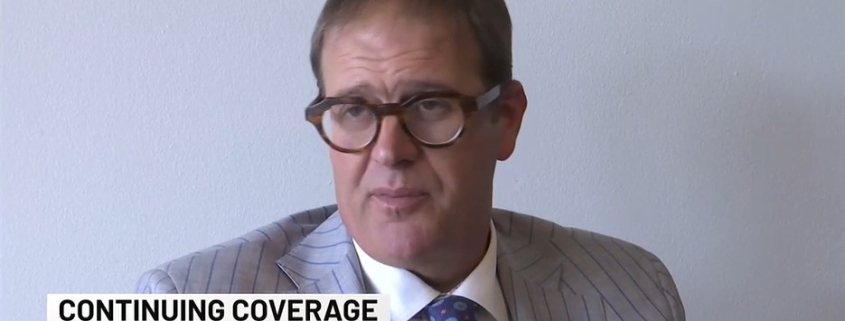FOX10: Jury finds Mobile man not guilty in fatal road rage shooting
MOBILE, Ala. (WALA) – A Mobile man charged with murder in a fatal road rage case has been found not guilty.
Trenton Thornton was accused of shooting and killing Patrick Edwards in February 2020.
This is the third time Thornton was tried after his two previous trials ended in a hung jury. Thornton’s attorney, Chase Dearman, says Thornton was emotional after receiving a ‘not guilty’ verdict in the courtroom Friday.
“Of course he was very emotional and of course, so was his family after being put through three trials- you can only imagine the emotion it was,” stated Dearman.
Prosecutors alleged that Thornton shot and killed Patrick Edwards in 2020 after what they called a ‘minor traffic collision.’ Thornton’s other lawyer, Dennis Knizley, argued his client acted in self-defense after Edwards pursued Thornton down a dead-end street in the Birdville community.
“It was late at night and he ended up on a dead-end road and tried to blend himself in with other cars and turn his lights off. Then the people in the other car got out and approached his car,” explained Knizley. “Thornton thought the man was about to hurt him or kill him and given all the circumstances of a high-crime area, he felt he had no choice except to defend himself and that’s what he did.”
Thornton testified that Edwards got out of the car and verbally threatened him.
“Trent’s testimony was that the man says ‘make one more move, and I’ll kill you,’ and there was a 911 call where some of this was being recorded,” said Knizley.
Knizley says the audio on that 911 call was made clearer than it was during the first two trials, and that it was consistent with Thornton’s claims.
“We heard the part- ‘make one move’ and it certainly supported Trent’s claim that the man said ‘I will kill you’ and I think that this was the determining factor in this case for the jury,” Knizley added.
In his final trial, a woman who was dating Thornton at the time of the shooting testified for the very first time. Dearman says her testimony clarified why Thornton was in the neighborhood in the first place.
“I do believe that her testimony made somewhat of an impact,” said Dearman.
In the first trial, Thornton testified, but in the second, he didn’t. This time, he took to the stand again- a strategy Knizley says the defense felt confident in.
“In self-defense cases, so many times, you must put the defendant on,” said Knizley.
Although FOX10 News did not get to speak to Patrick Edwards’ family after the verdict, FOX10 News spoke to his brother, Azelle Edwards, while the jury was still deliberating on Thursday.
Edwards says it’s been an arduous past few years.
“I wanted to say that we were trying to receive justice for my brother for the last four and a half years. My family has been going through a really bad time with this,” he said.
“These cases can be very difficult,” said Mobile District Attorney Keith Blackwood. “This verdict does not diminish the fight of our team in pursuing justice. We respect the decision of the jury and we will continue to fight for justice for all victims of crime.”
In 2022, a jury found Thornton guilty of shooting into an occupied vehicle and leaving the scene of an accident. Thornton was sentenced to 10 years behind bars, but he was only required to serve two of the 10. He’s since completed his sentence.
—
By Ashlyn Mitchell and Brendan Kirby
Published: Nov. 1, 2024 at 5:26 PM CDT
Original Article is found here.
Copyright 2024 WALA. All rights reserved.







 WALA
WALA


 Dearman Law Firm
Dearman Law Firm